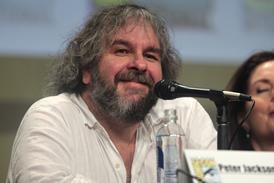- News
- Reviews
- Features
- Festivals
- Box Office
- Awards
 How Depression-era photography inspired the Oscar-nominated visuals for 'Train Dreams’
How Depression-era photography inspired the Oscar-nominated visuals for 'Train Dreams’ In conversation: First-ever nominees for new Oscars casting category discuss a changing industry and AI actors
In conversation: First-ever nominees for new Oscars casting category discuss a changing industry and AI actors ‘The Ugly Stepsister’ make-up and hairstyling team on creating "beauty and dirt" and their shock Oscar nomination
‘The Ugly Stepsister’ make-up and hairstyling team on creating "beauty and dirt" and their shock Oscar nomination
- Subscribe

Subscribe to Screen International
- Monthly print editions
- Awards season weeklies
- Stars of Tomorrow and exclusive supplements
- Over 16 years of archived content
- Berlin jury grid
- The Screen Podcast
‘My Father’s Diaries’: Visions du Reel Review
By Jonathan Romney2024-04-15T20:03:00

Source: Visions du Reel
Filmmaker Ado Hasanovic revisits the Balkan War through his father’s archival video and diary footage
SIGN IN if you have an account
Do you want to keep reading?
Register for free access to five articles a month

Subscribe today and unlock access to:
- Unlimited film & TV news, reviews and analysis on Screendaily.com
- All print and/or digital editions of Screen magazine
- Breaking news alerts sent straight to your inbox
- Digital festival and market dailies
- Weekly awards magazines
Access premium content Subscribe today
If you have an account you can SIGN IN now
Subscribe to Screen International
Screen International is the essential resource for the international film industry. Subscribe now for monthly editions, awards season weeklies, access to the Screen International archive and supplements including Stars of Tomorrow and World of Locations.
Find out moreSite powered by Webvision Cloud














